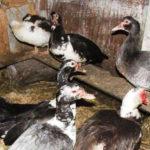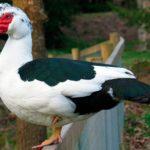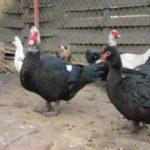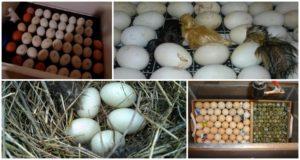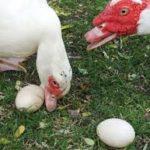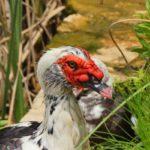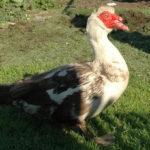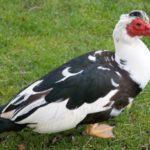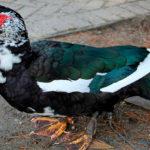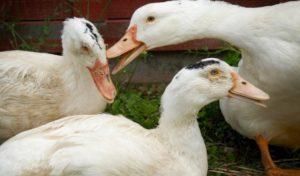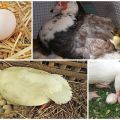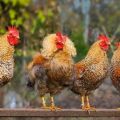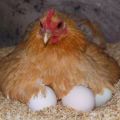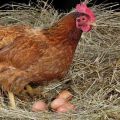For what reasons, Indo-women do not lay eggs at all and what to do, prevention
Birds don't lay eggs or why Indo-Ducks don't have offspring? There may be several reasons for this. And they are all unrelated. If ducks were bought specifically for egg production, this situation cannot but upset the owners. We will have to urgently solve the problem, otherwise it is not at all clear in the future how the failure in the behavior of the bird will end. At the same time, we will figure out what to do, how to act.
Indo-women stopped rushing: what is the reason
Among the reasons underlying the fall in ducks' egg production, the main ones can be distinguished. These include:
- nest problems;
- difficulty with nutrition;
- molting period;
- violation of hygiene;
- the influence of the season;
- the age of the bird.
The situation is not always critical. Sometimes there are great chances of breaking it, if you take measures so that the indowka starts to carry testicles again.
Nest and roost
Some domestic birds, including muscovy ducks, are extremely sensitive to their habitat. And this is the nest, the roost, where most often the Indo-woman spends time. There are norms for keeping ducks that are important enough to create comfortable conditions.
For some reason, novice farmers miss this circumstance.
It turns out that the laying hen is very sensitive to the nest. Not even to the material, but to its presence. It is allowed to make a nesting place for an Indo-female from old clothes, rags. The main thing is that the birds do not see each other. For this, partitions and dampers are arranged. The nest can even be assembled from cardboard boxes, scraps of boards, placing burlap inside, or some rags.
Bird feeding
Poor diet is another reason for the drop in the number of eggs. The daily rate includes plant food, supplemented with vitamins and minerals. Indo-women are in dire need of adequate nutrition in autumn, as well as in winter.
In addition, the lack of feed will affect the taste of the meat. Therefore, the duck should be given vitamins of group A (carrots, clover, grass flour), D (yeast, fish oil), E (tomatoes, green peas, spinach). Salt is also needed, up to 0.7% of the amount of food received. And don't forget about water. Liquid will be required up to 0.5 liters per day per hen.

Molting
Domestic ducks shed periodically, this period following the laying of eggs. Plumage change takes up to 60 days (sometimes longer). Molting conditions are associated with feeding, maintenance, even temperature conditions. The first time the female changes feathers at 3 months. Then - when it lays eggs. Moreover, the timing and duration of molt are individual for each duck.
Hygiene
Indo-women are believed to be sensitive to their environment and its components.This rule applies to the nest, those individuals who will be in contact with the bird. If suddenly, for some reason, the owner or habitat changes, the bird may react inadequately. Up to the point that it interrupts the natural process of laying eggs or leaves the nest.
In addition, if there is not enough water, normal, clean bedding, the duck will also break the regime. And even if the atmosphere in the place where the Indo-Ducks are kept is stale, musty, the bird will not rush either. These are the moments that beginner poultry farmers miss.
Another factor is “settlement density”. These hybrids have a very specific attitude towards their neighbors. They don't like it when other individuals are in line of sight. In addition, Indo-women do not like it if there are more than 3 of them on one square meter.
Age and season
Technically, linking the age of a duck to "performance", comparing this parameter with egg production, making conclusions is not so easy.
There is a direct link between the age of ducks and egg production. But it is not so obvious as to make it the main reason for the decrease in the number of eggs obtained. Rather, this factor is influenced by the conditions of detention, the climate of the room.
What do we have to do?
First of all, if it is noticed that Indo-women suddenly stopped laying testicles, you should understand the root of the problem. That is, what went wrong. And here are the probable reasons:
- nest;
- molting;
- vitamins;
- season;
- hygiene.
The owner is obliged to study these circumstances in order to then make the right decision. Apparently, the farmer should understand why the bird behaves this way and not otherwise. After all, a lot depends on this. Moreover, if ducks were bred exclusively for the production of eggs. Probably, it is necessary to sort it out as quickly as possible and then react.
How to prevent a problem from arising?
It is believed that disease prevention is much more effective than remedies. In this case, the scheme works to prevent the situation, there are no exceptions for the methods. Even at the initial stage, when it is planned to start an Indoor, you need to study the conditions of detention. It depends on how quickly the bird will gain weight and lay eggs. Provide the ducks with the required comfort, diet, and temperature. And then everything will work out.
